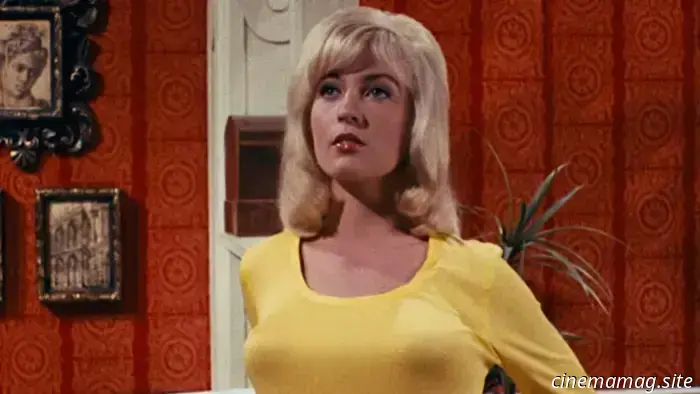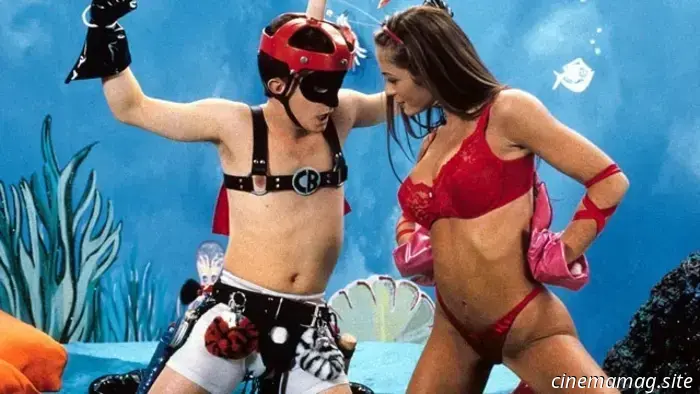
The Naked Gun Review: Akiva Schaffer’s Reimagining Parodies a New Era of Crime Cinema Pulp
In its initial form, the Zucker brothers' Naked Gun relied heavily on Leslie Nielsen's performance––almost every element of the first two films directed by David Zucker mirrored it. As the bumbling detective lieutenant Frank Drebin, Nielsen's exaggerated baritone embodied the rugged, hypermasculine seriousness present in a generation of patriotic entertainment that emerged during the Reagan era, which often parodied the leading men and morality tales from mid-20th century Hollywood pulp where Nielsen began his career. Drebin's naïve foolishness as he navigates clichéd cop thriller narratives, portraying the maverick hero, alongside Nielsen’s willingness to make absurd remarks or pull exaggerated faces during serious moments, served to playfully undermine the macho façade, indulging in amplifying the already childish nature of popular fantasies just a few steps from self-parody to parody. The films themselves were shot and scored in a manner that echoed the predictable schlock they aimed to spoof, with humor stemming from the narrative clichés and cinematic techniques of post-Dirty Harry cop dramas, pushed slightly beyond the typical over-the-top realism into realms of visual gags and surreal, childish logic (for instance, a chalk outline of a body floating in water at a maritime crime scene).
The action and crime media of America during the Reagan and Bush Sr. periods was notably formulaic, filled with imitators, and often amusing in its disconnect from reality regarding adolescent power fantasies that seemed to mock themselves. It’s difficult to claim that the cultural landscape that produced Arnold Schwarzenegger lacked self-awareness; however, the popular style portrayed these violent, macho fantasies with enough boyish sincerity to resonate with audiences, regardless of their seriousness. It was in this balance between appreciation and parody of American kitsch that The Naked Gun found its place.
However, the last Naked Gun film from Zucker and Nielsen, The Naked Gun 33⅓: The Final Insult, was released in 1994, and the landscape of American kitsch has shifted greatly in the thirty years since. The comforting beliefs of Reagan’s "moral majority," easily mocked for their fairytale simplicity, have been replaced by a darker ethos filled with nihilism, uncertainty, betrayal, and rage. With the proliferation of news, the Internet, and increasingly immersive forms of virtual escapism, Americans have grown desensitized to violent and pornographic imagery and have become accustomed to the dehumanization brought on by frequent exposure; we now require more extreme and inventive shocks to evoke any emotion, with constantly moving cameras and varying framerates to mimic adrenaline. Concurrently, a democratization of voices and images has made systemic violence more visible, with fewer Americans able to ignore the violence of our state or pretend that those in power wield it responsibly. The action cinema that followed Naked Gun has embraced these trends––the dystopian despair and anger of our political climate, the overstimulation of video games and social media feeds, and the blurring of moral boundaries surrounding fantasies of justified violence and heroic protectors—even as Hollywood persistently searches its past for the next big hit.
It seems only fitting that Akiva Schaffer’s reboot (or rather, legacy sequel) of The Naked Gun would cast Liam Neeson to step into the late Nielsen’s role––not just for their similarly phonetic names. Since reviving his career with 2008’s Taken, Neeson has become a quintessential star in the newer, harsher spectacle of 21st-century male violence: more raw and relentless like Daniel Craig than suave and boastful like Sean Connery; he’s not delivering witty one-liners but embodying a grim and flawed character, fighting not for country or creed but for vengeance or just to affirm his own existence. The challenge for Schaffer and Neeson is to determine whether this character can be funny.
Comedy is inherently subjective. However, in Schaffer and co-writers Dan Gregor and Doug Mand’s effort to craft a funhouse of humor similar to the Zucker-Abrahams-Zucker originals––while incorporating the sharp edges and increasingly dark shades of current popular entertainment––the answer to the preceding question is a clear: somewhat! As Frank Drebin Jr., Neeson grumbles and clenches through each trickster line as best he can; compared to his father, this Drebin is filled with rage, a quick-triggered widower harboring bitterness towards crime and the moral decline of America, as evidenced by his fixation on TiVo, Buffy the Vampire Slayer, and the Janet Jackson Super Bowl incident—references that provide insight into the film’s target audience.
When femme fatale Beth Davenport (Pamela Anderson)––an author of "true crime novels based on fictional tales she invented"––enlists his assistance in probing her brother's dubious suicide, Drebin finds a kindred spirit of sorts in Richard Crane (Danny Huston, perpetually greasy, but perhaps a bit outdated and stiff for the real-life counterparts he mirrors), a nefarious tech mogul fixated on sperm
Other articles
 A LEGO set featuring Disney and Pixar's WALL-E and EVE is set to be released in September.
The LEGO Group has introduced the LEGO Disney and Pixar WALL-E and EVE (43279) buildable set, inspired by the beloved 2008 animated film. This set also includes buildable figures of M-O and Hal. It is currently available for pre-order and will be released for sale on September 1st, priced at $69.99/£59.99; check it out here… […]
A LEGO set featuring Disney and Pixar's WALL-E and EVE is set to be released in September.
The LEGO Group has introduced the LEGO Disney and Pixar WALL-E and EVE (43279) buildable set, inspired by the beloved 2008 animated film. This set also includes buildable figures of M-O and Hal. It is currently available for pre-order and will be released for sale on September 1st, priced at $69.99/£59.99; check it out here… […]
 Mel Brooks Films Ranked from Good to Classic
Here are the 11 Mel Brooks films ranked.
Mel Brooks Films Ranked from Good to Classic
Here are the 11 Mel Brooks films ranked.
 Seven Superhero Comedies to Include on Your Watchlist
Casey Chong offers a list of superhero comedies to enhance your viewing options… What do Guardians of the Galaxy, Shazam! and Kick-Ass share? They are some of the most well-known superhero comedies that have left their impression on cinema, yet there are numerous others that are worth watching. Some […]
Seven Superhero Comedies to Include on Your Watchlist
Casey Chong offers a list of superhero comedies to enhance your viewing options… What do Guardians of the Galaxy, Shazam! and Kick-Ass share? They are some of the most well-known superhero comedies that have left their impression on cinema, yet there are numerous others that are worth watching. Some […]
The Naked Gun Review: Akiva Schaffer’s Reimagining Parodies a New Era of Crime Cinema Pulp
In its initial version, the Zucker brothers’ Naked Gun was not solely dependent on Leslie Nielsen’s acting—most elements of the first two films directed by David Zucker mirrored this. As the bumbling detective lieutenant Frank Drebin, Nielsen’s over-the-top baritone captured the serious, hypermasculine demeanor of a generation of patriotic popular culture that emerged in America during that time.
